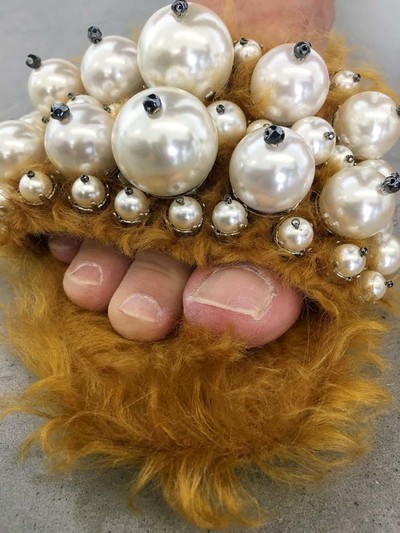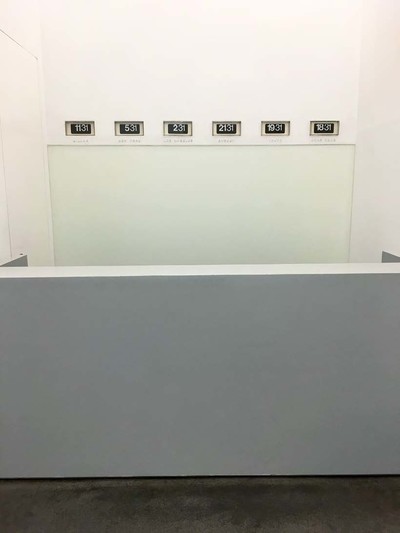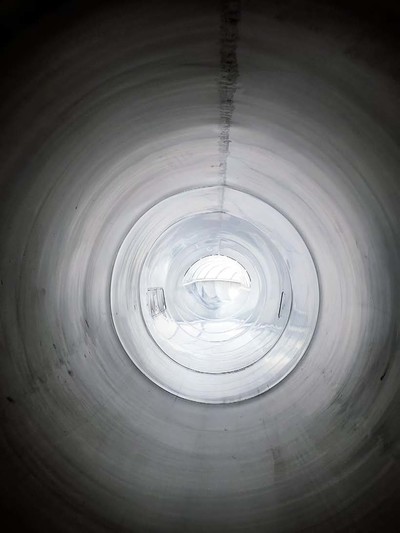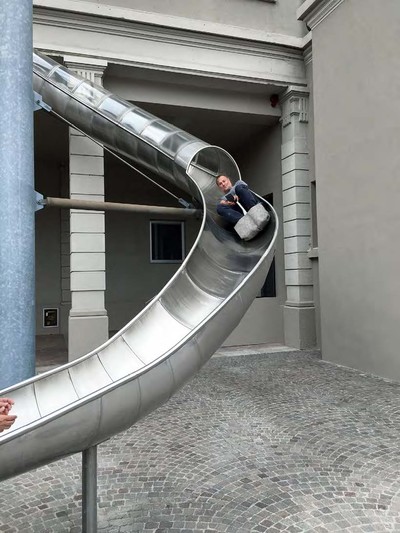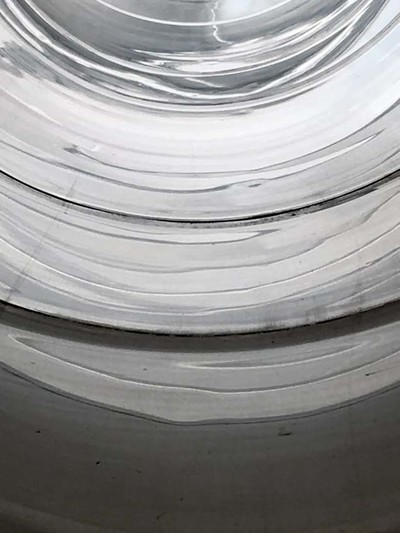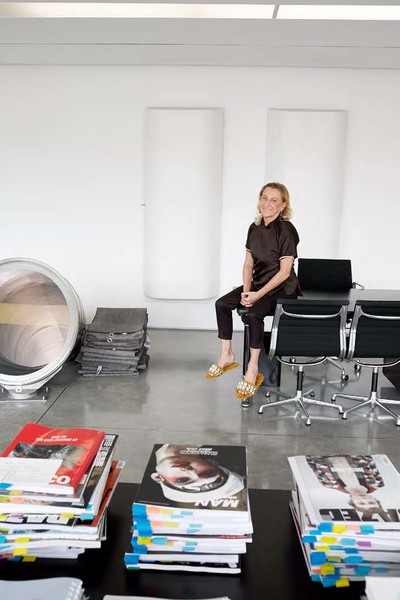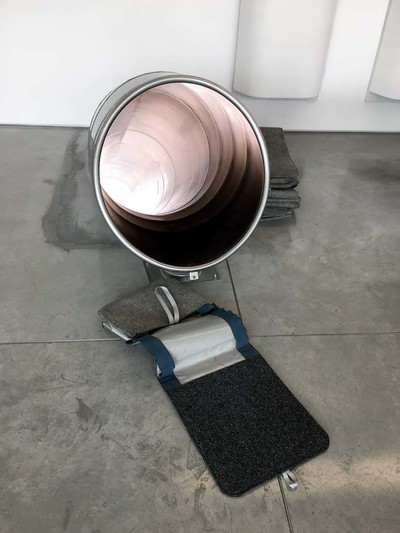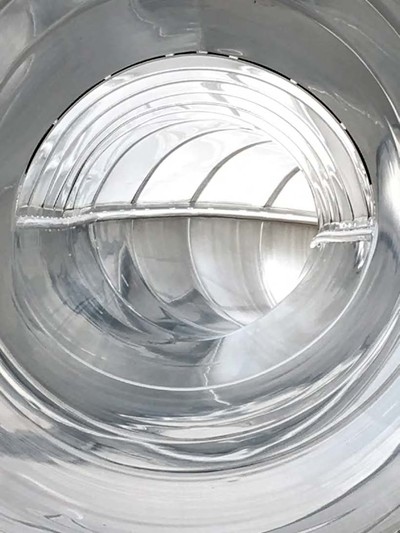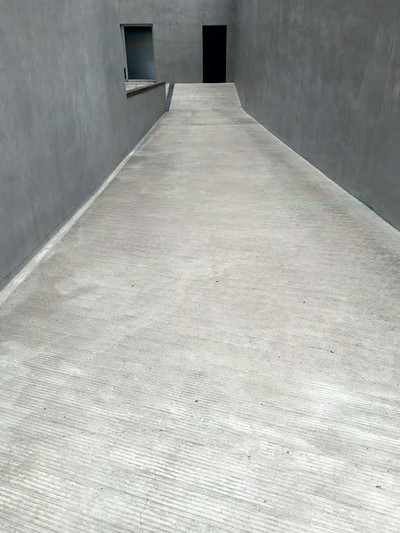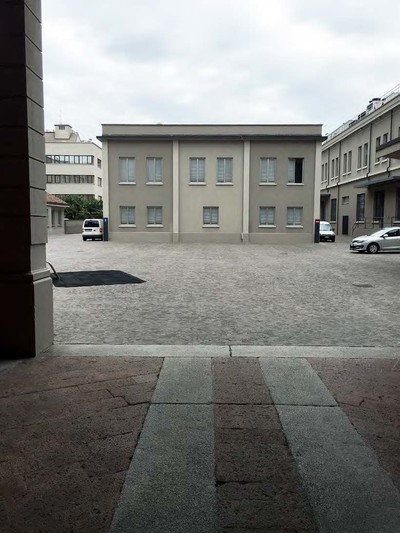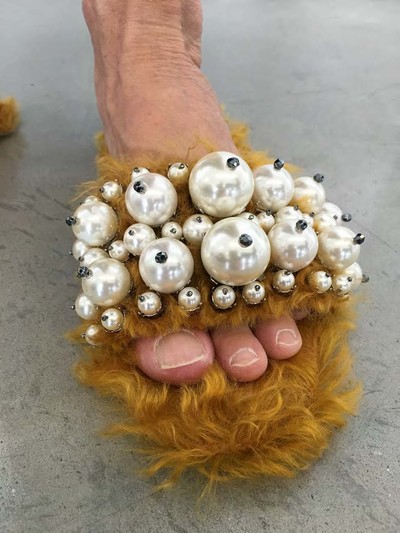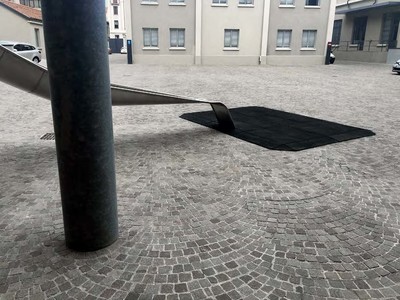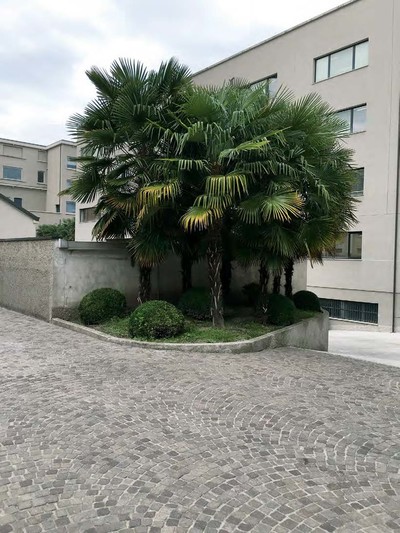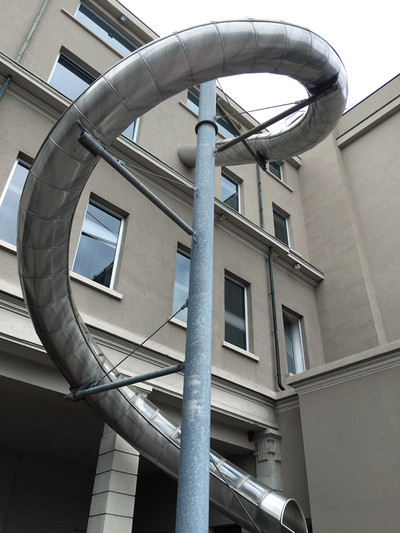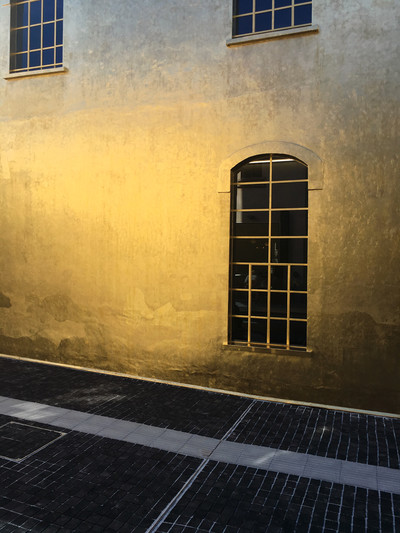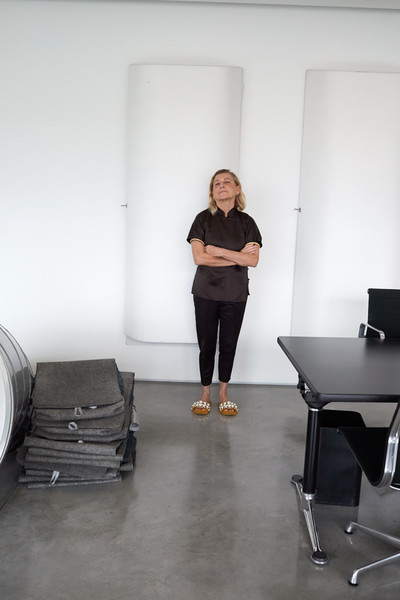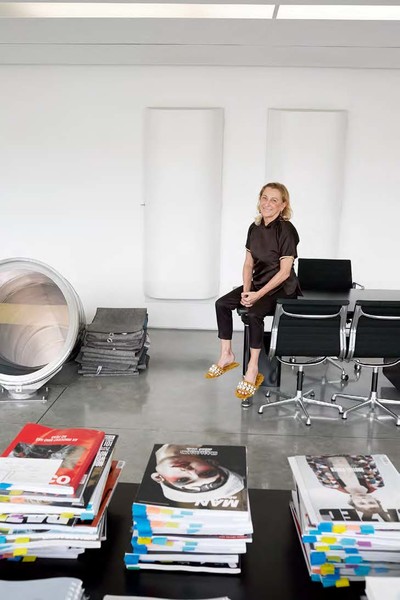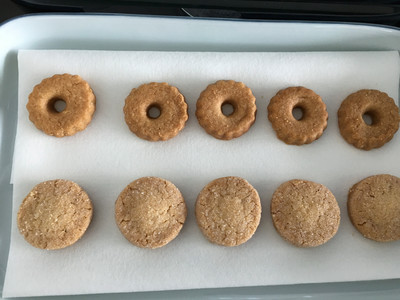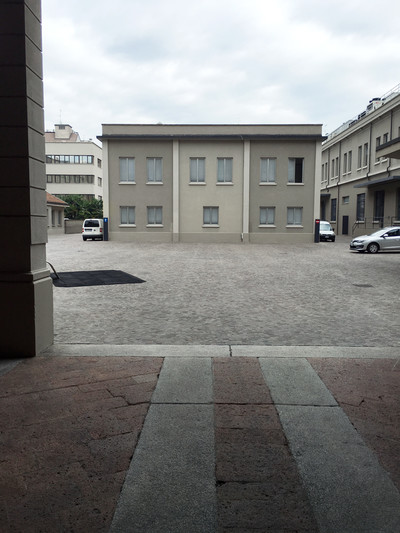Miuccia Prada and Raf Simons in conversation
By Jonathan Wingfield
Photographs by Juergen Teller
Few, if any, designers match the mind and mindset of Miuccia Prada.
At a time when fashion houses seem increasingly judged on their financial form – like some kind of results-based sporting contest – we can sometimes lose sight of just how unique a voice she is. Intimate yet operating at scale, never afraid to contradict or backtrack, and offering a female presence that’s defined only by its wonderfully unpredictable nature – formidable one moment, frivolous the next – there has always been more than one Miuccia Prada.
Which is why we drafted in a few friends – super-stylist Katie Grand, writer and actress Tavi Gevinson, and photographers Juergen Teller and Norbert Schoerner – to help us explore her world and her work, and listen to the designer in her own words.
Meanwhile, in June, we invited Raf Simons to Milan to chat with Miuccia Prada about what it means to be a fashion designer today. The honest, outspoken and revealing three-hour conversation they had covers topics such as self-censorship, scale of operations, the merits of running your own company, and why Miuccia Prada, Raf Simons and Marc Jacobs should all swap brands for a season, just for fun.
(At the time, Raf only had eyes for his own label, but his subsequent appointment as creative director at US giant Calvin Klein now adds an interesting perspective – and frisson – to this unique on-the-record meeting).
Prada, Milano
‘Us designers rarely get the chance to be together.’
Miuccia Prada and Raf Simons in conversation.
‘I’m never jealous of the good ones.’
Raf Simons and Miuccia Prada in conversation.
Let’s start the interview by discussing interviews. Love them? Loathe them? Necessary evil?
Miuccia Prada
I generally have a problem with doing interviews because the only way I can talk is if I say what I really think, otherwise it’s impossible. But sometimes what I think – and therefore what I say in interviews – is not always deemed politically correct.
Raf Simons
That’s one of the things I think we should talk about today; I think that designers should be freer to say what we really think. These days, we are no longer able to; we’re supposed to always self-censor ourselves. People express such extreme opinions online about our collections, yet if we dare say one thing that is not politically acceptable…
Miuccia Prada
…we are killed!
Raf Simons
And I find that very problematic.
Miuccia Prada
Me, too. I sense this so much, and I always find myself self-censoring because anything interesting that I want to express no longer seems possible. [As a designer] you don’t always have the time to explain what it is you want to say; you might be thinking about a complex conceptual idea but you want to be lighter, what you say might come out like a boutade, but that boutade becomes the headline – one word becomes your mantra. So you feel you don’t have any control over your thoughts, and very often – sometimes in a good way, sometimes bad – there is less possibility to answer. You can’t say this, you can’t say that, so it is better not to talk. The last interview I did, I took out 80 percent.
‘People express such extreme opinions online about our collections, yet if we dare say one thing that is not politically acceptable, we are totally destroyed!’
That doesn’t bode very well for this interview!
Miuccia Prada
[Laughs] No, no, it is not the journalist’s questions; it is what gets picked up after the interview. If in a context like this, I want to touch on a delicate subject, or express who I am, then I can articulate and discuss that and you will understand, but when a single sentence is taken out of this context – removing any irony or anything else – then it becomes another thing altogether.
Raf Simons
The more visible your position, the more you have to be careful. Having my own brand is different from when I was at Dior; people are not so focused on it. But at that time, I felt like there was all this pressure on how to behave and how not to behave, or how to speak. Not that I was given a list of rules; it just automatically happens like that. I found it very complicated, and [because of that] I started to read less and less about fashion, even though I’m usually really interested in what other people have to say.
Do you feel this is the case across the industry?
Raf Simons
I feel that everybody has become very careful – especially designers, and it is the actual designer’s point of view that I like to read the most. I am far more interested in what designers have to say than people might think. I can be a big fan of other designers, though I can also really hate the work of other designers, even though I am not supposed to say that. Hate is the wrong word, of course, but there are things you just don’t like, which of course, is fine. Personally, I don’t care if somebody hates my work; I have no problem with it.
Do you feel it is important for designers to communicate through words – written or spoken?
Miuccia Prada
I think it is my job to speak through the clothes.
Raf Simons
As designers, we choose to work through clothes and fashion shows and photography and everything. But I think we also have something to say. These days, there are so many people judging the fashion world who I don’t even know – beyond the people we know and respect, like Suzy Menkes or Tim Blanks – and they often have such extreme things to say that I feel they sometimes position themselves above people who have long-term experience. I am somebody who is very into young opinions, young voices, young creativity, but I don’t really know who all these people are.
Miuccia Prada
It depends on who you listen to: sometimes there are very good comments on the Internet, and then there can be something stupid. When you just have these naked anonymous comments you should be able to say to yourself, ‘Who cares?’ The tendency should be not to read these anymore, but I can’t resist being curious.
Raf Simons
Me neither.
Miuccia Prada
It’s our job, we have to know what is happening, but it goes beyond that. I think the complexity we are facing is almost worse than for politicians; up until the 1980s and even the 1990s, there was an audience group in fashion that you basically knew. But now you have to work with everybody, for better or worse.
Do you like the fact that you’re now talking to a wider audience?
Miuccia Prada
I like the idea of sharing my ideas with more people; that’s the interesting part, to work outside the small elite that I know. You are obliged to face the truth of different countries, of different people, but at the same time, the sheer quantity of comments – clever or stupid – that comes with a bigger audience is something that doesn’t work. The whole world is talking, but there is nothing coming out.
Raf Simons: While I have no problem with negative responses towards me, I do have a problem that I cannot be negative myself.
Miuccia Prada
I completely agree.
Who’s telling you not to be negative?
Raf Simons
No one is telling us, but you get punished for it. By the public.
Miuccia Prada
It is so true that through our job we cannot talk, and yet we are the minds behind all this big industry success. Maybe we don’t take our job into our own hands enough, and we should do.
Raf Simons
I have said things in the past that got me really punished. Publicly. I felt really upset afterwards and I thought, ‘God, man, why do I have to be punished by some anonymous person who writes the ugliest thing about my show? And why am I not allowed to react?’ I guess, because when you are a public person you have to just shut up.
Miuccia Prada
As designers I feel that we are always very strongly accused. Why does no one accuse journalists or bloggers? Why do we have to be the only ones under inquisition? I once said to a journalist, ‘Listen, you judge us, and although we never say it, we judge you, too’. [Laughs]
Raf Simons
I know that if Miuccia and I were speaking in a closed environment, we would speak in more extreme ways, and about other brands, too, because I know that they are speaking about us. It is not about being good or bad, it is about having an opinion, and I have a very specific opinion about other brands. I mean, right now I could throw two words out onto the table – two brand names – and we could have a discussion about them and if you published it, a bomb will go off! [Laughs]
Do you feel you are able to articulate your opinion about what is happening in fashion through the collections and what it is you do as a brand?
Raf Simons
I think with my and Miuccia’s shows they are clearly a reaction to specific things that we see. What I saw onstage yesterday [at Prada’s Autumn/ Winter 2016/17 menswear show] was a very clear reaction.
‘Prada is my own company, so it’s my own fault that it’s the size it is. But I don’t have to care if we don’t grow enough for the market. Whatever, who cares.’
Does the self-censorship you’ve both mentioned impact the way you design?
Miuccia Prada
No, not at all. I feel that in my job as a designer I have complete freedom.
Raf Simons
Yes, me too. I feel free with the collections. More and more. You just let it all out there, in the collection…
Miuccia Prada
On the subject of self-censorship, I feel like we should create a small group in which we can be free to talk, because I cannot stand it anymore. Because without that freedom to talk, the mind does not progress; if you cannot say bad things – or things that might be considered politically incorrect – how can you even hold a discussion? Being politically correct doesn’t allow you to be objective.
I presume it’s the dissemination of information now that’s at the root of these issues? I mean, you might have said something 20 years ago and it would have been contained in a magazine or a radio interview. But now you’ll say something and 20 minutes later, it is all over the world.
Miuccia Prada
I don’t know if it is just the fact it is so spread out. We probably have to be so politically correct because our business has become bigger; if you are small you can say what you like – whether that’s something super smart or avant-garde or just stupid – and nothing will happen. But if you are a big brand or part of a big group, it automatically becomes more moralistic. And in general, people are becoming increasingly conservative; and so the more superficial and the more generic that you come across as, the less you are criticized. This censorship has a negative effect and is a very serious thing.
Raf Simons
I think Miuccia’s suggestion of discussing these things in a kind of closed group is very interesting. It is important to know that there are other people who are of the same mindset as me, and share the same opinions; to know that I could talk to them about these things is very satisfying. The simple fact that I know Miuccia and a few others are out there is almost enough.
Miuccia Prada
I would love to create that group of people – the ones who respect each other – where we can say what we want. And the group should make a designers’ declaration; that would be so fun and so interesting and so honest! But the difficult part would be how to share those ideas and thoughts with others afterwards.
Raf Simons
Just doing that would already make us appear pretentious.
Miuccia Prada
Can you imagine? [Laughs] It would be impossible!
‘I could throw two words onto the table – two brand names – and we could have a discussion about them, and if you published it, a bomb would go off!’
Raf, you’ve mentioned your interest in other designers, interacting with them, exchanging thoughts, and so on. Why did you want to do this conversation with Mrs. Prada?
Raf Simons
Beyond the small group of people around me – my assistants, my friends, my family – I really feel a lack of dialogue with people I have something seriously in common with. I mean, I don’t think I can relate to absolutely everybody, but I was starting to feel very isolated in this world. When he had this LVMH Prize about two years ago, everybody came to Paris the night before it started, so Marc, Phoebe and I had dinner together at Marc’s house, which was such an eye-opener for me. And for them as well, I think.
Miuccia Prada
Because you were free to talk?
Raf Simons
Yes. It really set my mind in a different way. The three of us reflecting on things 20 years ago, 10 years ago, and how we feel about the future; it wasn’t the kind of conversation I was expecting to have, but everyone felt free. That is, of course, not something that you can do with everyone; you need to have mutual respect.
How do you regard the sense of competition among designers?
Raf Simons
There is obviously competition, but there is also respect. I think we are all competitive, and that is a good thing. I mean, I feel competitive towards Miuccia, and she with me…
Miuccia Prada
Of course.
Raf Simons
But that is a healthy competition, which I think we should always maintain, but then I am also really curious to share experiences, emotions…
Miuccia Prada
Yes, if you have mutual respect. I’m always saying, ‘I’m never jealous of the good ones’. What drives me crazy is when people are successful and I don’t respect them. Or when they are tricky and pretend not to be.
Raf Simons: There’s lots of them.
Miuccia Prada
Many.
I get the feeling you’re both wary of the fact that this industry has become just that – an industry. And with that comes so many more brands, more consumers, more magazines, more opinions, and a greater scale of operations…
Miuccia Prada
I think there’s something slightly wrong about this idea of big brands. Raf did the biggest thing by leaving [Dior] – chapeau, respect – because he probably didn’t feel comfortable anymore. Of course, Prada is my own company, so it’s my own fault that it is the size it is, but now I’m at a moment where I really want to focus on what I like, what I care about. I don’t have to care if we don’t grow enough for the market. Whatever, who cares, I really want Prada to stay in a context that I like. Because we grow, grow, grow and suddenly you start to lose control, and there’s something wrong with that, now I think we stopped that.
Is there a moment in fashion when you think structurally a big house becomes too big?
Raf Simons
I think the problem right now is that there is all this freedom in the actual garments and the performance on stage and whatever, but there is no more freedom in the structure [of a house]. Most of us Belgians have remained small and independent, but for many, structure has evolved into this kind of massive octopus where there is no more freedom; the structure itself has becomes too dominant and too defining.
Can you give me an example of how that manifests itself?
Raf Simons
Part of it is this idea of keeping the audience happy, with the events and the dinners and the presents and the advertising systems. Sometimes I think I would like to make it simpler, but more exciting…
Miuccia Prada
…and also more fun. I totally agree with him. One thing that I would really love to do is to work with Raf, and maybe with other people – it would be so much fun. If I could do a show with him, imagine how much fun we would have.
What is stopping you?
Miuccia Prada
Nothing, I think it is an experiment that could really be done.
Raf Simons
Maybe structure might be stopping that. Even my own Raf Simons brand – compared to a big power brand like Dior – is still structured. That gives possibilities, but it also gives a lot of non-possibilities. For me, I would be excited if Miuccia would do the Raf Simons brand for a season, and then I would do a season for Marc Jacobs in New York, and Marc would do Prada; I think the audience would be totally excited by that.
Miuccia Prada
Ah, completely!
Raf Simons
Maybe fashion should operate more like a museum, where you have a museum curator, but you have guest curators come in, too. I think that the fashion business has recently stopped exploring its own possibilities; it should become much more liberated once again.
Miuccia Prada
I totally agree. I really think that’s true.
Raf Simons
But it is up to the big voices to make that kind of decision themselves, because fashion is not a system that sits around wanting that. If Miuccia or Marc Jacobs say, ‘I am going to let this person do my brand for a season, and then I am going there for a season’, then others will follow. But it won’t happen until then.
Miuccia Prada
Yes, and I am thinking more and more about exactly this kind of idea, because it feels like it is needed – not just to get the world talking, but to broaden the horizons of what fashion can be, and also to have fun. What I mainly think is that you have fun when you really do good stuff, and that fun comes with other people.
Raf Simons
But the structure itself within today’s fashion business doesn’t always allow for that kind of idea. You know, typically within the creative structure there is the creative director, then the right-hand, and the other internal designers. Other structures might not be compatible. A couple of years ago I did a collection together with the American artist Sterling Ruby – he is a close friend who I trust very much, which is why I said, ‘Let’s do a collection together, but let’s do it all the way’. His voice was as present as mine, which is not usually the case. When you are in your own structure – even if you have a right hand – my voice or Miuccia’s voice remains the biggest. But when I invited Sterling, our voices were equal, the label had the two names on it, and it was a real eye opener, because I had to step back.
Miuccia Prada
Did that make you feel uncomfortable?
Raf Simons
For a moment, but not personally, because I love him and collaborating together was easy. But in terms of what Sterling brought, it was something that I would not have come up with alone. I kept thinking the collection had to be more special and he kept saying, ‘No, it has to be a normal shirt, and a normal pair of jeans, nothing more, not a special cut or design’. And at the end, when it all came together, I was like, ‘Man, you were right’. Sometimes you just need this different eye and different mindset to break out from your own systematic behaviour.
‘Could you imagine if, one season, Miuccia did the Raf Simons brand, then I’d go do Marc Jacobs, and Marc would come and do Prada? It’d be so exciting!’
Do you think that fashion is losing its sense of fearlessness?
Miuccia Prada
No, I think that still exists in our work, because many designers are quite risky in what they do now. Perhaps we do things that are too strange, and sometimes I think to myself, ‘Is this the right thing to do?’ – because there is that fine line between pure art and fashion. I’ve always wanted to make clothes that people wear, otherwise I’d change my job and become an artist. I am a fashion designer and I do a commercial job, but at the same time we want to be creative and we always want to push limits. Also there is this entertainment aspect: people just want to be excited. For instance, if Raf did the next Prada show instead of me, the whole world would be going ‘Wow!’ But maybe that’s all they would talk about. So you have to be careful that the choices you make are not influenced by this increasing need for entertainment.
Do you feel that fearlessness becomes harder to exercise the bigger you get?
Miuccia Prada
I decided to become bigger, and I like the idea of sharing my ideas with more people, but at some point you lose control of what happens after your show. It’s a very interesting moment right now in fashion, because Raf is right, maybe we should have more courage. He certainly did.
Raf Simons
It does feel like that to me. The whole thing about leaving Dior was not that easy, but I found there was a difference between being a creative director and having your own brand. I am one of the few people who has done both. You have people who are creative directors – they are born creative directors, like Ghesquière, Slimane – who do not know what it is to have their own brand. And then there are the others who only have their own brands, and then there are people who do both. And it is really day and night, I think. The responsibility, the emotion…
Miuccia Prada
Do you have any preference between the two?
Raf Simons: No, I like both. When you have your own brand it is something that you build, it is like your own baby. And when you are a creative director, you also treat it like a baby, but it is not your baby.
Ironically, it was Mrs. Prada and Mr. Bertelli who first gave you that opportunity to work for another brand, Jil Sander.
Raf Simons
Yes, that was a big thing for me; I hadn’t even done womenswear at that point, so I was scared. I was also thinking it would be a long-term thing – in the end it was seven years. Dior was short in comparison, only three-and-a-half years. Going in to these brands, I realized you cannot possibly know what it is like until you are there, being creative director – you just don’t know. And as much as there was incredible beauty in that house [Dior], and incredible people and ateliers and everything, I just felt like, ‘This isn’t for me, I am not the right person for them’. That was very, very complicated.
Miuccia Prada
Do you feel stronger now than you did a year ago?
Raf Simons
No, not necessarily; just the same. It is not something that I see as such a big thing, this whole idea of leaving Dior. I know lots of people were like, ‘Oh my God, you left Dior’, but I don’t see it like that. There was no fight, there was no conflict; it was just a conclusion that I made quite quickly. I don’t know if it is because I am Belgian – because we can be very demanding, I think, regarding what we want and how we see things in terms of our creative input – but I didn’t want to force my thing onto Dior either. I just came to the conclusion that this is where I stand, and this is what I will have to deal with if I sign up for the long term; and it is not how I want it, it’s not how I see things. I have my thoughts about what I think Dior could become over time, and they have their ideas of what it will become. I wish them the best with it, but it just wasn’t my thing in the long run.
Mrs. Prada, what was your feeling when you first heard that Raf was going to leave?
Miuccia Prada
I thought he did something very honest and brave. But I agree, I am sure he sees it as something much less dramatic than how it was viewed from the outside.
Raf Simons
The whole of the fashion world sees these things as like [feigning shock], ‘You cannot leave LVMH; you cannot leave Dior’. But when it comes to things like that I feel that you have to put each other on the same team, on the same level, and I am sure it wasn’t easy for them. Sometimes I hate the whole spectacle that surrounds the fashion world.
Miuccia Prada
Yes, too much attention.
You mean the hysteria?
Raf Simons
Yes, when people go into a new position or leave a position there is so much spectacle; the system pumps it up, and very often the brand pumps it up, too. I’ve always thought, ‘Just give me a little bit of time’. I started back in the days when everything was quite calm. When I started my brand it took years before people took any serious notice.
Miuccia Prada
Now everything is so public, everything becomes a big deal, and that is wrong and not necessary.
Raf Simons: It creates unnecessary pressure.
‘People like Ghesquière and Slimane are born creative directors, but they don’t know what it is to have their own brand. It is day and night, I think.’
Since leaving Dior, do you feel now that you have regained a sense of ownership because the work you’re currently doing has your name on it? And is that ownership and responsibility important to you?
Raf Simons
It is important to me, absolutely. But my own brand structure has always been pretty small, and I think that’s why subconsciously I also took on these big structure jobs – to kind of feel that distinction in scale. Now, after two decades, I’ve started to realize that I am not so unhappy with my own thing being small in scale. Of course, there is very little economic possibility, but with very little you can still do things that are crucial to a certain number of people, and those people react in ways that is really satisfying.
Miuccia Prada
It is absolutely time to rethink these systems and structures that have come to define us.
Raf Simons
Yes, I do think that there is something that we have to rethink. You know, there are a lot of people in charge right now who are not creative, and that is new.
Prada seems to remain an exception. Can I ask you Raf, what is it you admire about Prada?
Miuccia Prada
No, no, no, I don’t want to hear this. I am sure we respect each other, punto!
Raf Simons
That is easy for me to explain: on all levels, I can sense Miuccia’s very clear vision, her mindset, her view of the world, her view of art, her political opinions. And as one person she is able to construct and share that on such a huge scale. I find that mind-blowing.
How important is that when it comes to appreciating fashion design– actual garments?
Raf Simons
The reason I wear Prada is not just because I like the clothes; it’s also because Miuccia has a mindset that I can relate to. You know, there are all these brands in the world today making so many beautiful things – because everybody knows how to make clothes and design patterns and make things look beautiful – but I don’t want all that shit if the mindset is not what I can relate to. So even if a brand has a beautiful coat, if the person who designed it is not the kind of person I can relate to in terms of vision or opinion or culture, then I just don’t want to wear it. And I think that is different from lots of people.
You think for most people garments eclipse meaning?
Raf Simons
I think lots of people just grab whatever they can, simply because it is beautiful. And I think that is where fashion became a very different thing in the last decade. You take a bag from this brand, shoes from that one, a coat from another. When I was growing up, I always liked the fact that in fashion there was this idea of the Margiela woman, or the Dries Van Noten woman, or the Yohji Yamamoto woman or the Helmut Lang woman, or the Prada woman, or Prada man. It was based on mindset and culture. And because I think that the mindset that Prada has is extreme, I am very impressed that it could be scaled up to become this kind of institution. I am a big mess of course, because I have a similarly extreme mindset and yet I am still sitting here with a small brand!
Miuccia Prada
It doesn’t matter. You can have a small brand or a big brand, but the influence you have can be huge, in either case.
Do you recognize what Raf is saying about the clothes needing a mindset?
Miuccia Prada
Yes, I agree. You look at something and think it is a beautiful, but who cares about clothes if the mindset doesn’t correspond to you. Also, without sounding pretentious, I think that while people like us are very demanding, or sophisticated, or whatever you want to say, I think this sense of criticism is quite rare. Most people tend to have such a superficial opinion of things.
Raf Simons
The other outstanding thing about Miuccia is that she is a true pioneer, and there are very few pioneers in the fashion world. There are a lot of followers in fashion, as there always has been. In the 1950s and 1960s it was the same. Now I sometimes think that fashion no longer has a memory.
Miuccia Prada
Oh, yes, yes, completely! These days, the last person to have done something, is the one who owns it. Memory in fashion doesn’t even last six months.
‘I think that Prada’s mindset is quite extreme, so I am very impressed that it could be scaled up to become this kind of institution.’
Why do you think that is?
Miuccia Prada
People get too much information, too much of everything.
Raf Simons
When you are a more-established fashion brand, you are not supposed to say things about new people coming through, because then you are thought to be complaining. But I think it is clear enough to everyone what is new and what is not new, what is a copy; what makes sense and what doesn’t make sense.
How hard is it to continue finding original ideas? Is originality absolutely fundamental to what you do?
Miuccia Prada
I like the idea of doing something that is new, that is for sure. At least I tend towards that. But it sometimes feels like everything has been done, so today it is sometimes more about context and how you choose to put things together. For instance, you can work on something that is pop, and why women like bows, hearts, pink, and so on, and so the collection plays on that sense of obviousness.
Do you like the idea that you are sometimes referencing yourself in your own archives?
Miuccia Prada
I prefer not to, although I sometimes decide to do it. And anyway I have to say one thing about Raf: sometimes I think I’ve had a fantastic idea, and Olivier, who works with me and Fabio on shows and knows Raf’s work so well, says to me, ‘Miuccia, Raf already did that before’. [Laughs]
Raf, earlier you made reference to your Belgian-ness, and I was interested to know how relevant or important you think your respective origins are in the context of fashion design?
Raf Simons
Belgians have no real history when it comes to clothing or designing or manufacturing, so in that sense I think it was quite weird that suddenly there was Belgian fashion, with Martin Margiela, Dries Van Noten, Ann Demeulemeester… And I think it was important not to compare Belgian fashion to Paris or Italy – with no production possibilities, no factories in its history.
Miuccia Prada
Maybe that is why it is interesting.
Raf Simons
I think so, yes. And since there was no history, everybody was feeling the desire to do their thing, but were shy about the exposure they might get. We feel small because we are a small country, but then deep inside a lot can happen when you feel small. That is a psychological thing, so I could feel from that generation that there was so much they wanted to let out, but they were shy and reluctant. I find that in fashion the people who scream the loudest very often have the least to say. Anyway, I think that my generation, which is the following generation, definitely carried the same weight of not really being supported by the country, because there is no system.
Miuccia Prada
It was very relevant for fashion, that different approach, fashion changed after that.
Raf Simons
With the other countries, Italy, America, France, there was a ground and a fashion structure to build from. And I think that a designer like Martin Margiela had a problem thinking about structure during his whole career. He was not structured, he was a creative person, and had he not had his business partner, Jenny Meirens, maybe we would never have even heard about him. I think that’s the case for quite a few of us.
Mrs. Prada, as time goes by, do you feel you have a greater ambivalence or a greater fondness for your Italian-ness?
Miuccia Prada
The way I was brought up was never really Italian. I mean, I’m deeply rooted in Italy, but that was never at the top of my thinking. I just wanted to be in the world, so I never felt this Italian-ness, even though I maybe am so Italian. But last year I kind of decided to be more patriotic….
Raf Simons
Could you see yourself working in another country?
Miuccia Prada
No, I live here. I am very happy and proud of the fact that I live in the home where I was born, and the place where I started to become political is right next door – all my history is here. That grounds me and gives me strength, as do my friends.
Raf Simons
But do you think that your work would look different if you were to design it on a completely different continent?
Miuccia Prada
I have no idea… I don’t think so. But who knows?
‘Sometimes, I’ll think I’ve had a fantastic idea, but Olivier Rizzo, who works with me and knows Raf’s work, says, ‘Miuccia, Raf’s already done that.’’
Another question for you both: an auctioneer in Paris recently told me, ‘Fashion no longer has prestige’. It was a comment that’s really stuck with me. I wanted to get your thoughts on this.
Raf Simons
I think the opposite.
Miuccia Prada
Me, too. More and more. I have to say, when I was starting this job, in the late 1960s and early 1970s, it felt like it was the worst possible moment to be a fashion designer. This was the feminist revolution and I was leftist, working for the [Communist] Party, yet I loved fashion and that prevailed. But there was a real sense of shame for me to be working in fashion because it felt too superficial. And then, maybe 10 years ago, I noticed so much appreciation from intellectuals, artists, architects and so on. They really respect fashion now, they enjoy my position, and seeing what I can do for them with my Fondazione. I think it is curious how what I learned through fashion has had so much influence on the Fondazione, because fashion is very free – at least in our minds – and I think that one of my challenges now is to demonstrate how my job as a fashion designer can help improve my work in the Fondazione. So I totally disagree that fashion has lost its prestige.
Raf Simons
I agree completely with Miuccia; I think it is extremely prestigious. In my opinion, the only problem with fashion is that it’s become pop.
Miuccia Prada
Completely, like music.
Raf Simons
I didn’t study fashion, but for the kids from my generation who studied fashion in the 1980s, there was a slight feeling of shame about it. Parents would say, ‘Oh God, our kid’s into fashion, why can’t he be a painter or something?’ Whereas these days, I get the impression that all parents want their kids to be in fashion! Because it’s become very popular and mainstream and there is big prestige and there are big-money jobs, and everybody wants to be in that world. So I think it is very wrong what he says. It is not elitist anymore, maybe, but that is something different. I’ve said this before: I don’t think we should feel ashamed that fashion was once elitist, and not for everyone. I don’t think it was wrong. But I also don’t think it is wrong that now it is supposed to be for everybody.
We are clearly in a period of huge democratization in fashion and many other fields. Do you think that elitism has value within that?
Miuccia Prada
It is a difficult question to answer. Elitism is already by definition not such a great word. Elitism is like the word luxury; they are really bad words. But if elitism means studying, searching, reading, discussing, then it is a good word.
Are the words elitism and luxury bad because you find them inherently contentious?
Miuccia Prada
When people ask me about the word luxury, I refuse to answer them because I hate that word and anyone who talks about it, whether it’s a person saying luxury is a big diamond or someone else saying luxury is walking in the countryside. Personally, I think any answer is wrong when you’re talking about luxury. Elite is an equally bad word if it just represents somebody who thinks they are better than another person. Then, it is obviously wrong. But if it represents something of actual worth, then it can be something good. So I don’t know how to answer.
Raf Simons
There is definitely a fashion hierarchy and that is connected to the idea of elite. Everybody can buy a ticket to go to a rock concert, but in fashion it is still the fashion people – the designers, the houses – who decide who can and cannot come and see their show. If it is right or wrong, I don’t really
know, but I would like to explore how it could function in a different way. I mean, I did my last show without any seating; people just stood and watched.
Miuccia Prada
Yes, everybody wants to be first row. I say, ‘Listen, the world is not democratic! Designers are judged every single season – that one’s the best, that’s the worst, that’s second best, third, fourth – so don’t pretend this is a democracy’. To do a show, like Raf has, without seating seems like a much
better idea.
Raf Simons
Although I was scared that people would complain, ‘Ah, we have to stand so long’. Because, you know, people are often complaining.
Miuccia Prada
With yesterday’s show, the first row actually had the worst view; the view from the higher up rows was better! But try explaining that the fourth row is better than the first row; of course, they would prefer to sit in the front row and see less. But you see how every little thing that you say could offend somebody.
Raf Simons
We keep on coming back to what we dare and don’t dare say! I mean, I think that I am quite a daring person but…
Miuccia Prada
…not suicidal!
‘Everybody wants to be on the front row, but listen, designers are judged every season – he’s best, she’s worst – so don’t pretend this is a democracy.’
Mrs. Prada, you mentioned before the importance of the work you do for Prada fashion and how you are able to bring that into your art foundation. But I was wondering, what are the other metrics of success for you? How do you equate success personally?
Miuccia Prada
Let’s just say I am happy that a collection is successful when I feel it from the audience, or when I read comments. But after that I am very sad sometimes because I really don’t enjoy the idea of success, I never have done. I am happy if it is not a disaster, but the idea of success has never really given me happiness. I don’t know what would happen if my career was a disaster…
Is the day after the show – like we are today – a big comedown, a kind of hangover?
Miuccia Prada
I don’t have the time to think about that. Today I have this interview, and then over the next 10 days, I have to work on the new Miu Miu collection, to invent a whole new world! Maybe we’ll get Raf to do it!
Does that pressure to invent new worlds motivate you or make you anxious?
Miuccia Prada
Well, right now, we’re in a very anxious and intense moment in general about what is happening around us, with Brexit and the Trump vote coming up. It is a very difficult and daring moment and so I am always thinking, thinking, thinking about everything in relation to my job. In that sense, it is good. But that doesn’t leave a lot of time for relaxation.
It is rare that writers or musicians or architects exist within systems that require them to create something entirely new every six months, or less.
Raf Simons
They have their own systems. And, as fashion designers, we still have a choice. Miuccia could say tomorrow, ‘I will do one collection a year and show it whenever I want’, and everyone would be there. But while that might please Miuccia, does that please the turnover of her company? It is as simple as that. With my personal brand I am doing two shows a year, but I could also decide to only do a single show every three years. To please myself I could do that, but I also know what that would mean economically. In the art world, though, there are people who actually do that: Robert Gober doesn’t really produce much work; when he is ready he’ll just call [his gallerist] Matthew Marks. But there are now a lot of young artists following a system: they produce work for every art fair, every event, and there is an agenda for each show. But by doing that, then everything becomes too similar. The weird thing is that as a designer or an artist, you are always confronted with your own sense of will; it is about what you want and what you don’t want, whether you allow yourself or not to do these things. And that is the most difficult thing, I think. When Miuccia speaks about her dissatisfaction, that is something I recognize very much. While sometimes I might pretend to be very satisfied, in a way, I always feel restless.
Creatively speaking, when are you happiest?
Raf Simons
In the creative environment I think I am most at peace when it is just a normal working day, in-house.
Miuccia Prada
That is the moment I enjoy the most, too: when I can finally work without distraction, because there is almost always something that is involving other people. But the day when there is nothing to do except just work is like, ‘Ahhhhh’. It’s so relaxing.
How often is that?
Miuccia Prada
Not so often, but the pleasure of working without other distractions, those are beautiful days for me.
When and where are you able to be most creative and productive?
Miuccia Prada
I’ve discovered that when I am in bed – in the early morning when I am still a little bit asleep – is when I can concentrate on what really matters for me. And that helps, because I’ll arrive at work with a clearer idea. I should say that with my small group of people here, we work really last minute, increasingly so. And I accept that it is my fault.
‘Miuccia could say tomorrow, ‘I’m only going to do one collection a year and show it whenever I want.’ But does that please the turnover of her company?’
Really, why?
Miuccia Prada
I don’t know. There is so much to do: collections, campaigns, there is never a quiet moment. This last men’s show we did in less than 15 days.
Raf Simons
You see that everywhere now, within the big structures. For my own brand, we start the collection three months before the show; otherwise it wouldn’t be possible, because our structure is too small. Even at Dior, with the couture, we had to start on time.
Miuccia Prada
We have the most fantastic people here, who work miracles and are very generous with their time, because they often finish so late. I feel coupable because I shouldn’t take such advantage of their skills, but the quality of the people and the production is amazing.
Does this quality of production allow you the freedom to spend more time experimenting on the designs?
Miuccia Prada
Yes, and that is my fault. When I start working on a collection, I will say, ‘Ah, this is nice, that is nice, this is nice’, I like everything. But once the models come to the fittings, I’m more like, ‘This is shit, this is shit, this is shit’, and so it is only at the last moment that I really know what I want. Sometimes, I just find myself pretending to like something…
Raf Simons
We are very different, I think. Once I have the idea, usually three months before the show, it won’t change: the way I see it then stays exactly the same until the end. Nothing changes. I think this is because I am always used to working by myself. I don’t work in the evolved fashion system,
with consultants and stylists and all those people together on the creative side, except for my own creative right-hand, who is in the company permanently with me. Sometimes I think maybe I should work with more people because putting the whole show together by myself is really stressful.
Is that stress useful though, required even?
Raf Simons
Well, going back to what Miuccia said about dissatisfaction, these days I’ve started to hate the actual day of the show – no, not actually hate, I should avoid using that word [laughs] –
but I no longer find it in any way pleasant. I don’t know why, but I see myself becoming an idiot that day. I see mistakes and then I am not gentle enough about expressing them to people. Then there is all the press afterwards, and everyone wants the same thing at the same time. I just feel very helpless and I sometimes wish we could skip the show day entirely, but, you know, it’s the moment that many people have been waiting for. The following day can be very difficult for me, too. This season, I slept until five o’clock in the afternoon.
Miuccia Prada
You know when I am happy? When, in my head, I know that I’ve got a clear concept of the show. After that, I can leave it to others, because for me that is when it is done and I am finished. The reality, of course, is that I work after that moment, and I also realize that the translation of this idea into reality – from a concept into producing garments – is what is difficult, and where you learn a lot about your actual working process. Even if I might pretend that the production part is less necessary, it is of course very necessary, in order to improve my overall thinking.
Are you articulating the concept in your mind right up to the last minute?
Miuccia Prada
Yes, and I don’t know if that is because I like to work under stress or because I become more difficult the nearer we get to the show. So I’ll typically start with maybe four or five ideas and then one will prevail; we don’t always have the time to make the other ideas into toiles, so you think, ‘OK, we’ll maybe use those another time’. Working in a hurry you have to produce more, but there have also been some shows where the refining of the idea was so precise that at the end you have more or less what you need. I know people who do, for instance, 2,000 pieces; they mount earlier and then they select, do the styling, and so on. I don’t work like that, I work out of precision and reducing, reducing, reducing.
Do you prefer chaos or calm? Or do you need a little bit of both? Because Raf, you said that the chaos stresses you out…
Raf Simons
I am not a chaotic person. I just can’t do that. I can be a mess, but you know what I mean, I am not that kind of person. I am organized, which I think is very Belgian.
Is organization one of your attributes, Mrs. Prada?
Miuccia Prada
I don’t know. I really don’t know! The result is what counts.
Raf Simons
I am only interested if what you make is sublime. If that comes out of chaos or organization, who cares? I was fascinated by the question you asked Miuccia about when you’re at your most creative. For me, this comes late at night, when I should be falling asleep, when I don’t really want it to, when I don’t have a notebook or anything to draw with. Like you say, Miuccia, it comes like an automatism, and you immediately react. I definitely couldn’t just sit down at a desk each day for three weeks and start thinking about it.
Miuccia Prada
I know when we are getting good ideas because I find myself smiling, laughing. Until then, if I am not smiling it means I haven’t done anything good.
‘I am deeply human, even if sometimes I’m nasty with the people around me. You have to be nasty at some point in order to achieve things for everybody.’
Do you think the people who work closely with you sense that, too?
Miuccia Prada
I think so. It is a communal work, and we all know when there is something good going on.
Raf Simons
I demand from the people around me that they tell me if it is good or bad. I’d hate to be with people who say it is good all the time.
Miuccia Prada
That is one of the reasons why I like to work with Fabio so much, because most of the time he tells me what is wrong, and that is so necessary.
You’ve talked today about self-censorship of your words. How acute is your own sense of self-editing, of quality control in your designs or ideas?
Miuccia Prada
Ideas can be so pure when you do the fashion show, but my job forces me to see the bad things – ‘This doesn’t work; this isn’t selling’. It forces you to see the reality, and to understand what people like, even when that isn’t always what you like yourself. That is the most relevant point in my work: always to face reality. When it is good that is fine – it doesn’t make my life better – but I only care about what doesn’t work. Because you have so much to do that you don’t have time to enjoy what is working. You have to take care of what doesn’t.
Are you able in your own mind to think, ‘I’m sure this is what I should be doing?’ And then are you confident that the people you are working with will absolutely see that?
Raf Simons
Yes. And I think if I didn’t feel that coming naturally anymore then I would step out [of fashion] in a split second.
Miuccia Prada
I agree.
Raf Simons
I could not live with the self-realization of experiencing that. I am too proud for that. I see what is happening in fashion, and you have to be honest with yourself, it is a matter of your own decisions. You see people who used to be the most relevant, but who are no longer relevant, and they still go on…
Miuccia Prada
It depends how you see it. Maybe the actual working is more relevant than the being on top. Armani, he likes to work – it is his company, his job – so why should he stop? As a woman I want to work until late in life. But who knows? Maybe one day I will get fed up, I’ll step down, and then it will stop. I don’t know exactly. But for sure I like to work.
‘Sometimes my husband comes home and says, ‘Let’s not speak about work.’ But friends, family, love, work, problems, traumas, death – it’s all one.’
What percentage of your life would you say you give to fashion?
Miuccia Prada
A lot.
Raf Simons
Personally, I could step out from this now.
Miuccia Prada
Because you are a man, maybe. Being a woman, perhaps if you don’t work you start thinking about aging and all that stuff. Maybe you become a mother and are happy to stop, I don’t know. But between the job and the Fondazione, it is such a big deal for me; I think that sometimes they are a relief from life, because sometimes life can be so tough.
Do you find escapism in the work?
Miuccia Prada
A bit, yes. The fact that you have to go to work is distracting.
Do you see it as going to work?
Raf Simons
Even if it is demanding, it is a nest that you have created for yourself, a very safe environment. You can always go there and be with people you have a nice time with, and that you like…
Miuccia Prada
…and that those people like you.
What are your feelings about the tension between isolation and unity? Do you feel it is important, as the industry grows ever bigger, that you don’t retreat into isolation?
Raf Simons
Yes, definitely. I had been in the game for about a decade or so when I realized that designers do not talk with each other. Maybe it is because I come from such a small-scale design environment. Antwerp is like a village, so you would bump into Ann Demeulemeester or Dries or Walter [Van Beirendonck] at the bakery or in a nightclub, and you would just have a dialogue.
Miuccia Prada
You know what, maybe artists and architects are forced to stay away more from one another, because they are always taking part in the same competitions or shows. I am sure they are jealous of each other.
Raf Simons
Every field has its own rules of competition.
Miuccia Prada
But any time I am with other designers – mainly the ones that I respect, but also others to whom I am maybe indifferent – I always have a good relationship, with nearly everyone, and it is very nice. And we don’t have the occasion to be so near, because in the art world they go to the same openings, maybe they do group shows; they are forced to be together because they have the occasions. Us designers don’t really have the occasion to be together…
Raf Simons
The need to have this dialogue has increased over the past couple of years, as our system has become more fucked up, and I see everybody in a situation where they seem to be more isolated.
In what ways do you feel the system has become fucked up?
Raf Simons
I might get punished for saying this, but when you are creative director in a big group I feel you get pampered to the extent of becoming isolated. We’ve talked a bit about hierarchy today. Sure, there should be structure, but not hierarchy, and definitely not a human hierarchy. There were people at Dior who didn’t dare talk to me! That is not normal. That is something I find unhealthy. It is like the king-on-the-throne kind of situation.
It feels, Mrs. Prada, that although the scale of your company has grown, there remains a distinct feeling of humanity. I think that is what defines it.
Miuccia Prada
This is really what I care about most, about human feeling and existence. I am more and more interested in people’s lives: moments, fears, passions. Someone once told me, ‘I don’t want to make interesting things, I want my life to be interesting’, and I’ve kept that in mind, as it was a very clever person who told me.
That’s quite post-materialistic.
Miuccia Prada
It’s really what I’m interested in and clothes are at the service of your life. Ultimately, it’s your life, and the lives of others, that counts. Even if people don’t know it, I am deeply human, even if sometimes I’m nasty to people around me. You have to become nasty at some point because you have to achieve things for everybody, but really I’m not nasty at all. If I could spend my days being more generous with people, listening to their problems and so on, I would love that much more. But at some point you have to lead, you know.
It’s that corporate world cliché where it’s lonely at the top, and you can’t share your time with that many people.
Miuccia Prada
The thing that I would love most would be to be seated in a bar with friends, from morning to night! That is what I love: to be with people. It probably doesn’t look like that, but even last night I was with my friends and the people who were working at the bar and so on, having finally finished the show. It was a moment with people. I was like that when I was young and in politics. That is what I liked; I like to be with people and to talk.
Raf has spoken before about compartmentalizing his life – there’s the work, and then there’s the life and the family, and love – is that something that you do too, or do you think that the two merge?
Miuccia Prada
[Pauses] I think that at the end they merge… they merge. When I started to work with artists and the Fondazione, I didn’t want people thinking I was taking advantage of art, so I kept them separate, even if in my mind it is not separate at all. As much as you might want to keep separation, your life and your thoughts are one. Sometimes my husband comes home and says, ‘Let’s not speak about work, OK?’ But your life is one: friends, family, love, work, problems, traumas, death, it is all one. And that is life, basically.
Thank you both very much for your time.
Miuccia Prada
I am tired; this was really intense. Thank you, Raf, for coming.
Raf Simons
No, I thank you.
Miuccia Prada
OK, now I need to go to the bar!
